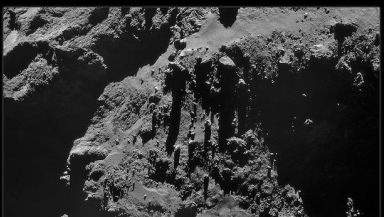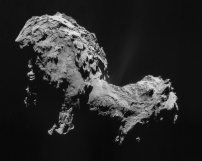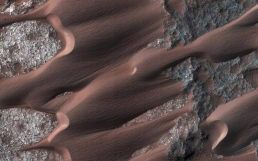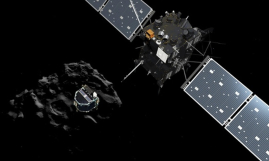
Last month, the spacecraft Philae woke up after months of hibernation. Now, its outer space adventure continues: Could it have woken up while sitting on the surface of a comet that appears to show signs of alien life?
Leading astronomers are now focusing their attention on images of organic-rich black crust captured by Philae on the comet 67P/Churyumov-Gerasimenko. These are believed to be indications that signs of ancient living organisms are present beneath the comet's icy surface.
There's more: Images of organic material that looks like viral particles were also captured by Rosetta, another European spacecraft circling the comet.
With these signs, Professor Chandra Wickramasinghe, an astrobiologist and astronomer involved in the mission planning of the deployment of these spacecraft some 15 years ago, said the possibility of the existence of alien life just got bigger.
"Five hundred years ago it was a struggle to have people accept that the Earth was not the centre of the universe. After that revolution our thinking has remained Earth-centred in relation to life and biology. It's deeply ingrained in our scientific culture and it will take a lot of evidence to kick it over," he said.
For Wickramasinghe, images taken from the comet may mean that it was once home to "micro-organisms being involved in the formation of the icy structures, the preponderance of aromatic hydrocarbons, and the very dark surface."
"These are not easily explained in terms of prebiotic chemistry. The dark material is being constantly replenished as it is boiled off by heat from the sun. Something must be doing that at a fairly prolific rate," the astrobiologist said.
His colleague, Dr. Max Wallis from the University of Cardiff, meanwhile, saw the organic-rich black crust and the organic materials found on the comet as a sign that microbes—similar to organisms called "extremophiles" that inhabit the most extreme environments on Earth— could have also once existed in outer space.
These scientists have already conducted experiments which proved that microbes could have actually lived in the watery regions of the comet where Philae is located.
Further research is also being conducted on the possibility that these comets sowed seeds of life on Earth, and even on Mars.
















